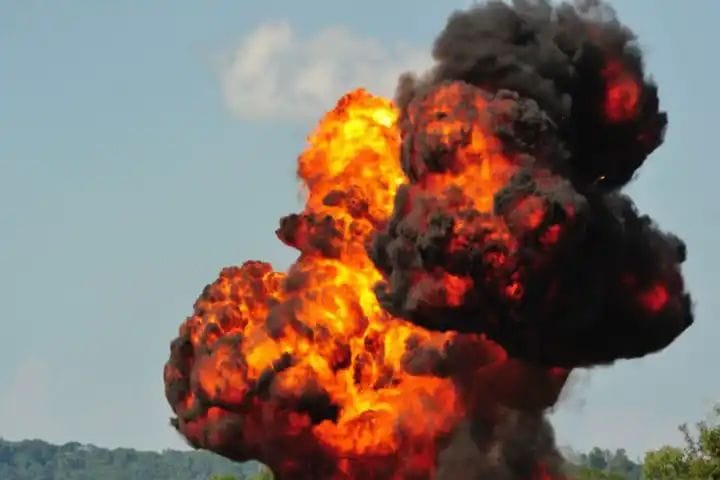Iran : At least 73 people were killed and 170 others injured after two blasts struck a crowd marking the anniversary of the 2020 killing of General Qasem Soleimani in Iran’s Kerman.
The explosions occurred near the grave site of Soleimani, the head of the Revolutionary Guard’s elite Quds Force, in Kerman, about 820 kilometres southeast of the capital, Tehran.
Rahman Jalali, the deputy governor of Kerman province where Soleimani is buried, said the incident was a “terrorist attack”.
The blasts came with tensions running high in the Middle East a day after Hamas number two Saleh al-Aruri – an Iran ally – was killed in a Beirut drone strike which Lebanese officials blamed on Israel.
Iran’s Tasnim news agency, quoting informed sources, said “two bags carrying bombs went off” at the site. “The perpetrators … of this incident apparently detonated the bombs by remote control,” Tasnim added.
The ISNA news agency quoted Kerman mayor Saeed Tabrizi as saying the bombs exploded 10 minutes apart.
Qasem Soleimani?
Soleimani was the architect of Iran’s regional military activities and is hailed as a national icon among supporters of Iran’s theocracy. He was killed in a US drone strike in Iraq in January 2020. His death has drawn large processions in the past.
At his funeral in 2020, a stampede broke out and at least 56 people were killed and more than 200 were injured as thousands thronged the procession.
Declared a “living martyr” by Iran’s supreme leader Ayatollah Ali Khamenei while still alive, Soleimani was widely regarded as a hero for his role in defeating the Islamic State jihadist group in both Iraq and Syria.
In the eyes of many Iranians, his military and strategic prowess were instrumental in warding off the multi-ethnic disintegration of neighbouring countries such as Afghanistan as well as Syria and Iraq.
Long seen as a deadly adversary by the US and its allies, Soleimani was one of the most important powerbrokers across the region, setting Iran’s political and military agenda in Syria, Iraq and Yemen.
A survey published in 2018 by IranPoll and the University of Maryland found Soleimani had a popularity rating in Iran of 83 percent, ahead of then-president Hassan Rouhani and then-foreign minister Mohammad Javad Zarif.
(With inputs from AP, AFP)





